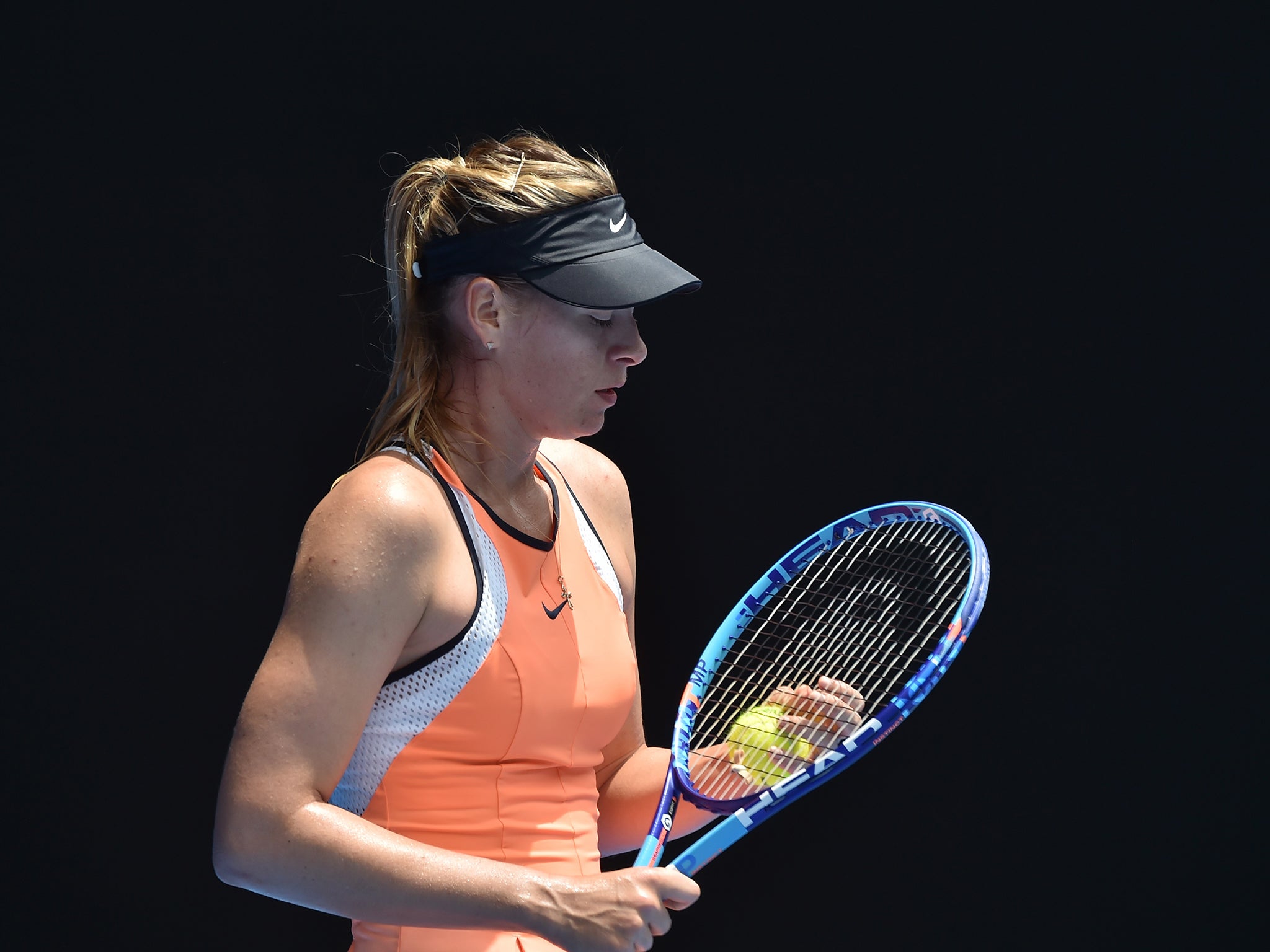Maria Sharapova banned: ITF statement in full as star is handed two-year ban following failed drugs test
The former world number one admitted to taking meldonium for 10 years after being recommended to do so by a family-approved doctor on medical grounds

Your support helps us to tell the story
From reproductive rights to climate change to Big Tech, The Independent is on the ground when the story is developing. Whether it's investigating the financials of Elon Musk's pro-Trump PAC or producing our latest documentary, 'The A Word', which shines a light on the American women fighting for reproductive rights, we know how important it is to parse out the facts from the messaging.
At such a critical moment in US history, we need reporters on the ground. Your donation allows us to keep sending journalists to speak to both sides of the story.
The Independent is trusted by Americans across the entire political spectrum. And unlike many other quality news outlets, we choose not to lock Americans out of our reporting and analysis with paywalls. We believe quality journalism should be available to everyone, paid for by those who can afford it.
Your support makes all the difference.Former Wimbledon champion Maria Sharapova been handed a two-year ban after failing an anti-doping test at the Australian Open in January.
The 29-year-old Russian admitted to taking meldonium, a heart disease treatment, for a period of time which overlapped the 1 January 2016 cut-off date, when it was added to the World Anti-Doping Agency’s (Wada) banned list. The International Tennis Federation (ITF) released a statement (below) on Wednesday announcing the news.
Sharapova, the former world number one, admitted to taking meldonium for 10 years after being recommended to do so by a family-approved doctor on medical grounds.
The ITF confirmed that Sharapova failed the drug test on the same day as her quarter-final defeat by Serena Williams in Melbourne, and she was informed of the failed test via letter in March.
All athletes were informed that the drug had been added to the banned list at the beginning of the calendar year but Sharapova insists she only knew the drug by the name mildronate.
The statement in full
An Independent Tribunal appointed under Article 8.1 of the 2016 Tennis Anti-Doping Programme (the "Programme") has found that Maria Sharapova committed an Anti-Doping Rule Violation under Article 2.1 of the Programme and as a consequence has disqualified the affected results and imposed a period of ineligibility of two years, commencing on 26 January 2016.
Ms. Sharapova, a 29-year-old player from Russia, provided a urine sample on 26 January 2016, after her quarter-final match at the 2016 Australian Open in Melbourne, Australia. That sample was sent to the WADA-accredited laboratory in Montreal, Canada for analysis, and was found to contain meldonium, which is a metabolic modulator that is included under section S4 (Hormone and Metabolic Modulators) of the 2016 WADA Prohibited List, and therefore is also prohibited under the Programme.
On 2 March 2016, Ms. Sharapova was charged with an Anti-Doping Rule Violation under Article 2.1 of the Programme (presence of a Prohibited Substance in a Player’s Sample). She promptly admitted that she had committed the Anti-Doping Rule Violation charged, and asked for a hearing before an Independent Tribunal in accordance with Article 8 of the Programme to determine the consequences to be imposed on her for that violation.
At a two-day hearing on 18-19 May 2016, the Independent Tribunal received evidence and heard legal arguments from both parties, and subsequently issued a reasoned decision on 8 June, which is available below. The Independent Tribunal determined that (1) Ms. Sharapova should serve a period of ineligibility of two years; (2) due to her prompt admission of her violation, that period of ineligibility should be back-dated under Article 10.10.3(b) of the Programme to commence from 26 January 2016 (the date of sample collection) and so should end at midnight on 25 January 2018; and (3) her results at the 2016 Australian Open should be disqualified, with resulting forfeiture of the ranking points and prize money that she won at that event.
The Tennis Anti-Doping Programme applies to all players competing at Grand Slam tournaments and events sanctioned by the ITF, ATP, and WTA. Players are tested for substances prohibited by the World Anti-Doping Agency and, upon a finding that an Anti-Doping Rule Violation has been committed, sanctions are imposed under the Programme in compliance with the requirements of the World Anti-Doping Code.
Join our commenting forum
Join thought-provoking conversations, follow other Independent readers and see their replies
Comments